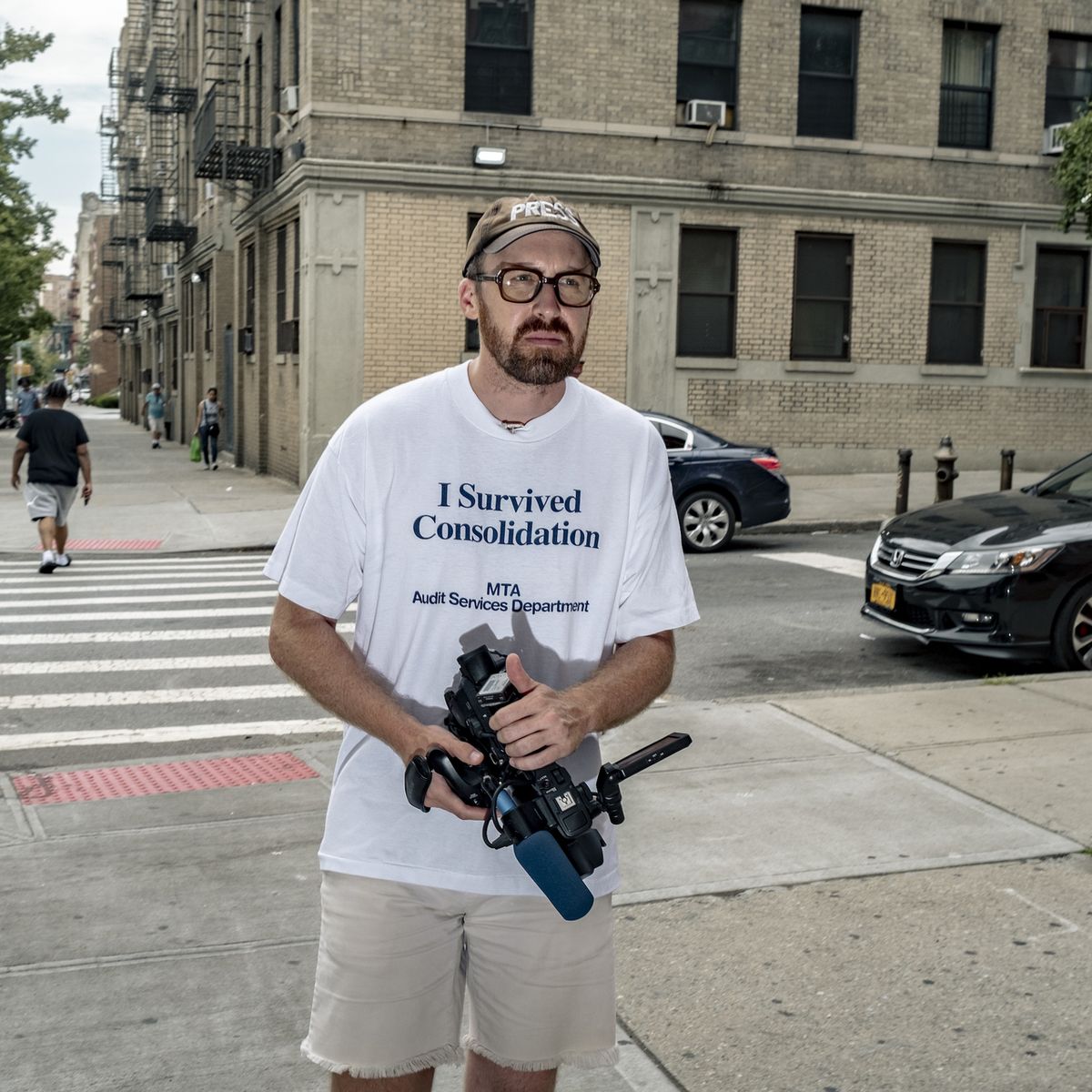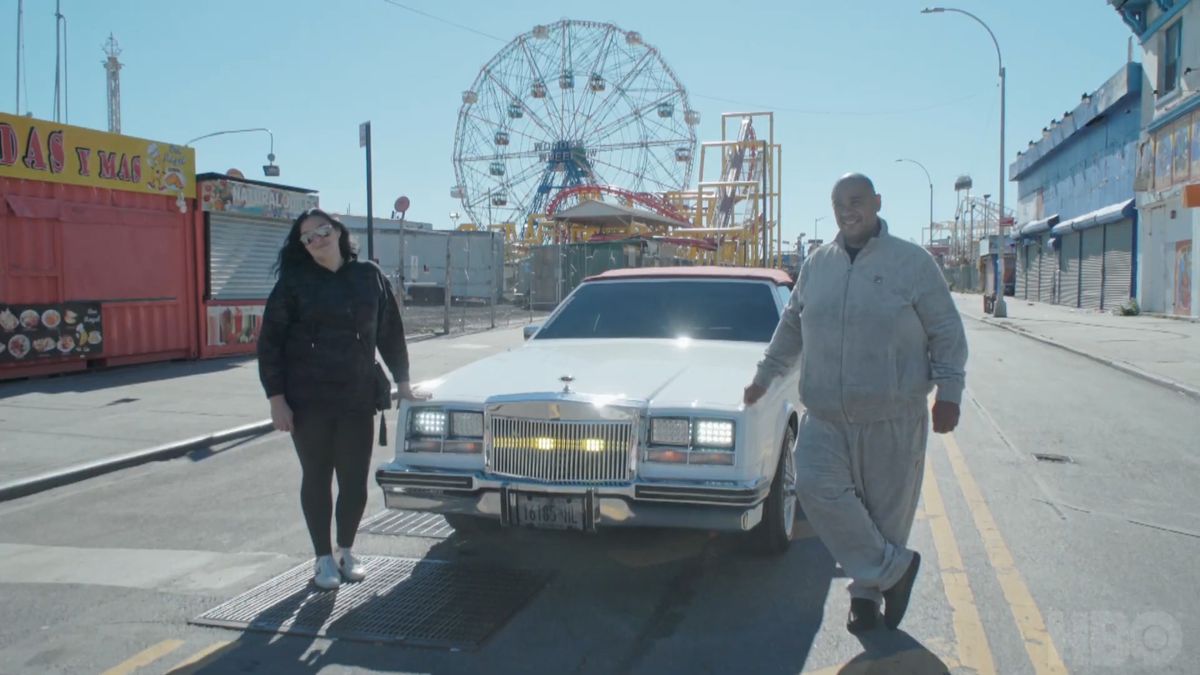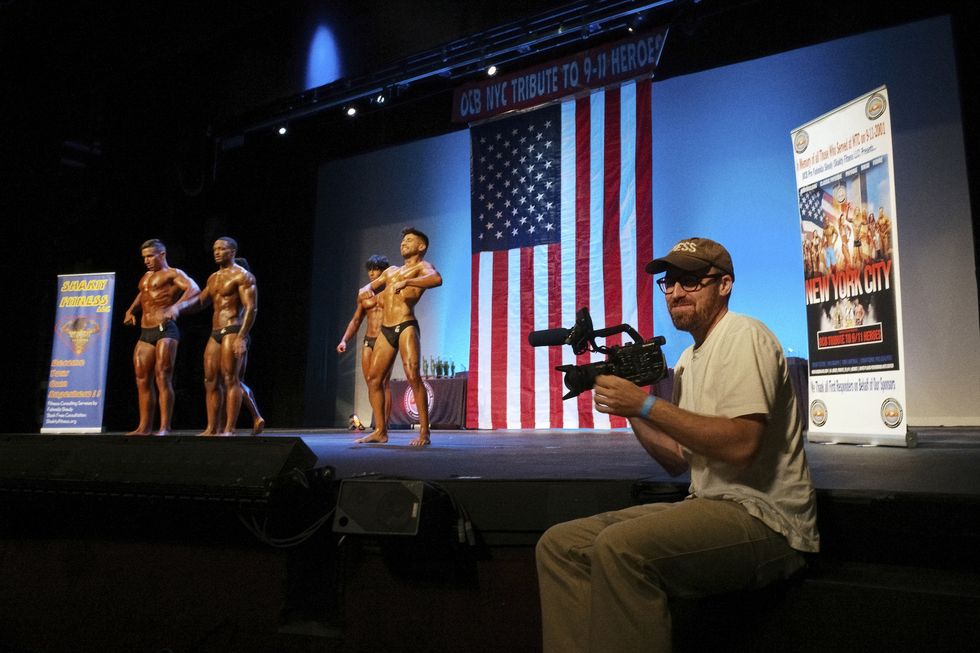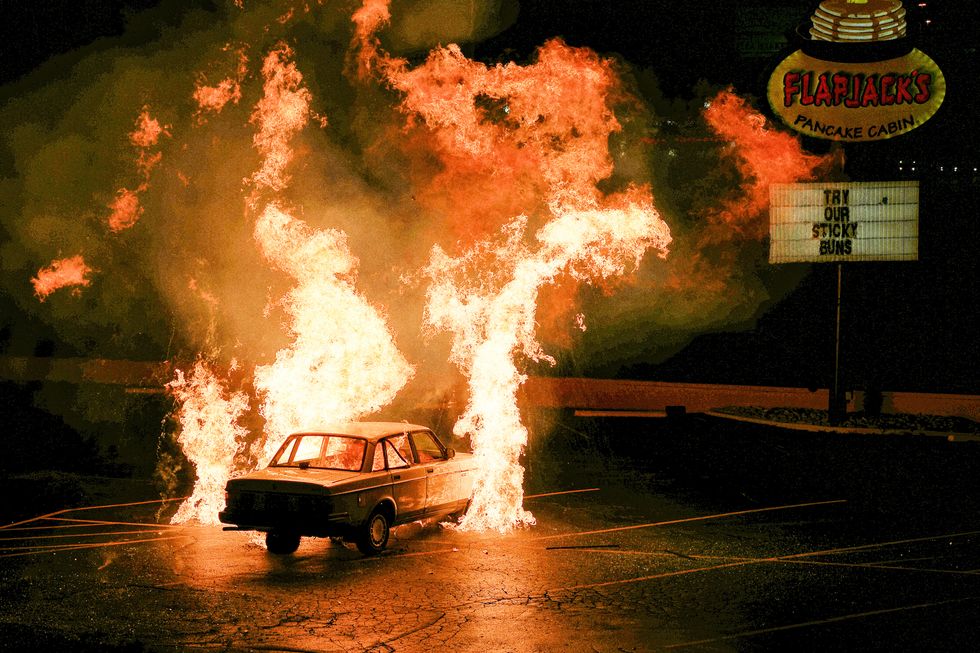John Wilson shows me one of the many, many diaries which he’s been keeping since he was in college. The writing in each square is tiny. Page after page is full. It started as a way of staying organised, but it got a bit bigger than that. “I've also used it in relationships to, like, try to win an argument,” he says. “But by the time I take it out and go through the calendar, I've already lost the argument pretty much. The technicality is not going to make anyone happier.”
At last, the third and final season of How To With John Wilson is coming to BBC iPlayer. It’s the most culty cult comedy of all, the kind of thing you find yourself bending friends’ ears about repeatedly: a POV wander into New York City’s mundane weirdness that spills out across America, as simple guides to everyday problems – how to throw away your batteries, be spontaneous, cook risotto – turn into meditations on the really big stuff. This time: giant pumpkin growers, an aborted attempt to get into a party celebrating his own show, and people freezing their brains so they can be reanimated in the future.
When we speak in the summer, Wilson’s Zoom background is a picture of an apparently abandoned single-room shack he found on an estate agent’s website. His cat is somewhere behind him, right where the Zillow shack’s toilet appears to be, and to the best of his knowledge his extremely adorable former landlady Mama, whose move to Las Vegas featured in season two, is well. He keeps getting her post, at any rate. Wilson’s halting, nasal voiceover on How To is just the way he talks. His voice has been compared to that of a Muppet, which feels both very mean and not that far off.
“When I started writing this season with [co-writer Michael] Komen, um, I, I just got really excited, um, by all the things that a potential last season could unlock. I feel like I was able to do stuff this season that I was kind of afraid to do in the first couple of seasons, like things I either reveal about my own life or things I reveal about the production of the show or just the impact that the show has had on my life. And, um.” He clears his throat. “I just wanted to end on a really strong note, that, you know, that kind of left, you know, I mean.”
He starts again. “I think leaving people wanting more is the best thing you can do sometimes.”
It feels like there’s a much more personal note to some of the stories this time.
There's some stuff that some people in my life are going to be hearing for the first time, on TV, which is a strange feeling to me. But that's just the kind of life that I've created for myself, so, uh, I guess they're kind of used to it at this point.
Do you find it more comfortable to do that via the medium of TV?
Yeah, in a weird way. It's kind of like how sometimes conversations – hard conversations – are easier to have when you're in a car because we're not looking at each other. It's kind of like that but with a show.
How did you come to decide on what story or what note or what idea to finish on? You only get one swing at ending the show.
Yeah, this is the end of this project as it is. I think that there is a bit of finality to this as a third and final season, but in terms of a larger career as an essayist, I don't see it as an end, you know? I do think we hit a bit of a vanishing point thematically in this season. Like within the finale, I'm kind of dealing with some of the biggest, most existential issues that I've dealt with thus far, and I never want to repeat myself, so I just wanted to load the finale up with, I think, some of the deepest questions. I think a lot of the show was kind of culminating to this moment, where we confront pleasure and the infinite and responsibility and family and all of this stuff, and vulnerability. It kind of all hits this critical point in the finale.
What did you make of the people freezing their brains?
I mean, honestly, they may outlive us all, you know? The joke may be on us. I really loved covering that group of people because they are religious in this way that I haven't really encountered before. Their version of heaven is just infinite life on earth in this very, like, material kind of way. And they think about the kind of logistics of eternal life, which, you know, I feel like a lot of religions don't always do. Will you still have your money? How much will you be worth? Will you have a box of your favourite possessions? It's like they're trying to rationalise it which I really like. I mean, this company may exist for a lot longer, it may go under, and I think that's what makes it like so interesting because you'll be able to follow this particular group for as long as you're alive as you want to, to see what even happens with them.
Were you persuaded at all?
Um, not really. I have no interest in living forever. It sounds like a nightmare.
Could How To have worked in any other city?
I feel closest to New York, just having grown up in and around here. And I have a complicated relationship with it, which makes it a rich subject matter. And the people have a certain quality here that I'm not sure I could find somewhere else. But I'm not sure: I mean, a lot of the show is filmed in different cities around the world. New York is a great home base for it, but I do end up travelling a lot, and I think I could continue to travel with this kind of work and maybe try other cities as a home base. I just haven't fully got there yet, conceptually.
It feels like there is a critical mass of weird stuff happening all the time.
I wanted to make this work to begin with because I had never really seen New York depicted the way that I see it. But when I go to other cities, I feel similarly: you know, I'll go to Los Angeles or I'll go to Chicago and I don't understand why I've never seen it depicted the way it actually is. Even though there's so much content produced in these other places, there's still this blind spot. And I feel like there's still room there to explore.
Are there any parts of the city which are more reliable than others for getting footage?
I think midtown Manhattan is really good. You get the highest turnover there of commuters and tourists, and people are usually very much in their own world. That neighbourhood usually bears a lot of fruit. Whenever I don't have a specific area in mind, that's usually where I end up.
Have you ever got yourself into an interview or meeting someone and felt a bit too weird or frightening?
The scariest thing was just entering the Bang Energy Life CEO's mansion in Florida. That was I think the fastest my heart had beaten up until that moment during production. Like, I was really scared when I was explaining to him why I was in his house, and what the episode was about, but once we convinced him that we were with HBO, then it was just all green lights, so my anxiety was gone. I'm more worried just about footage being corrupted, or destroyed, or lost, or something. That's what I'm most scared of.
How did you pitch it to Nathan Fielder, and what’s he like as a collaborator?
Nathan is a great collaborator. Nathan taught me how to collaborate, honestly. I was really stubborn when we started, and I thought I had all the right ideas, but I didn't. And he, like, completely beat that out of me. Not physically, but, like, you know, mentally. Although he probably did beat me up. He basically told me what he thought was special about it, and that inspired us to make this kind of pitch video where it was like three minutes or so, I just explained who I was and what kind of work that I make and what I wanted to do with the series – it was all very much in the voice of the show where I was speaking to you like directly in the room. We met with HBO, we sat an iPad down in front of them and played this video, and then I walked them through a potential pilot episode.
Now How To is finished, do you see any idea or mood or thesis that connects it all together?
I still did want it to feel unfinished, even if I do reach a certain point with certain themes. It's hard to say if I've really figured anything out. I think over the course of the three seasons, I've learned less about the subject matter of each episode and more about like… I've just gone deeper into my own excuses as to why I don't want to learn how to do some of these things, so it's hard to say if I've really progressed that much. I think that the project of the show is, on the surface about self improvement, but I also want to make people feel comfortable not improving and just satirically finding strange workarounds to actually improving yourself. I think that's so often what we do, and so even if I don't have some grand revelation or big answer to everything, I think it's much more realistic. I want to make people feel like… I don't know. Maybe watching me not answer questions will inspire people to actually go try to figure out the answers.
How To With John Wilson airs weekly on BBC2 from 8 March and will be available in full on BBC iPlayer















